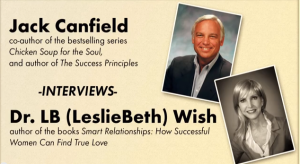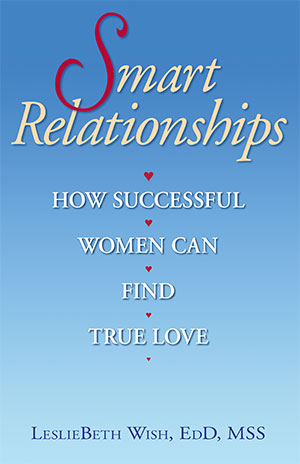How to Prevent Arguments and Make Decisions with your Partner: Secrets to Couple’s Smart Problem-Solving.
Part One in a Two-Part Series.
 Don’t let your arguments land you in Divorce Court! All couples have disagreements, but the smart ones know how to handle their differences and avoid those ugly, heated, out-of-control fights. Below is a guide of the top tips.
Don’t let your arguments land you in Divorce Court! All couples have disagreements, but the smart ones know how to handle their differences and avoid those ugly, heated, out-of-control fights. Below is a guide of the top tips.
Smart Problem-Solving Guide
1. Happiness does not require agreement on everything. Think about it. How likely is it that you and anyone else will share exactly the same interests, needs, priorities and preferences—and at the same time? So don’t panic or worry if you and your partner differ. People do change their thoughts and beliefs throughout the lifespan.
Instead: View disagreements and differences not only as the strength of your relationship but also as the opportunity to face and resolve problems.
2. On the other hand, know and accept that most couples have long-standing unresolved issues! Does that sentence surprise you? The differences in needs and solution styles between you and your partner are both your strength and your weakness. You’ve probably heard the expression “opposites attract.” But what does that mean?
It means that the hidden strength in smart relationships lies in our tendency to be attracted to someone who brings complimentary skills and personality qualities to the relationship. These differences empower you as a team, especially when unexpected events challenge your problem-solving ability. Life almost always throws curve balls. You’re caught off guard by incidents such as scary health diagnoses in you or family members, divorce of parents, or worrisome behavior in your children. When one of you tends to be calm and analytical, and the other more empathic, your different styles can forge a caring but smart approach.
Bundled into these differences are also each person’s emotional needs. These needs are the product of childhood family environments, life events, self-awareness, and the genetically-mediated factors such as intelligence, disposition, and ability to learn and correct. All these issues come into play when making decisions big and small—but especially the big ones that couples tend not to act on or act on effectively.
Let’s say that Bob and Sue can’t make a decision about turning the basement into a finished room. Bob wants a room for his pool table and card games. Sue wants a play room for the grandchildren. For years, nothing has been done. They live in a small, two-bedroom home.
There are many reasons, including costs, but the key issues are the emotional intensity of the decision to each of them. Bob grew up in a one-bedroom home with his parents and younger brother. At night the two boys slept on the pull-out couch in the living room. He longed for a real bedroom. He said he hated his childhood home so much that the memories make him feel sick and angry at his parents and his father’s inability to earn a decent living so they could afford a two-bedroom home.
Sue came from a wealthy family. She was the “make up” child—the result of her parent’s last attempt to save the marriage. Her parents’ divorce was nasty. Sue moved in with her mother and lived in a luxurious two-bedroom condo. Sue felt very lonely because her much older siblings sided with her father, and they never visited. When Sue became a grandmother with five grandchildren, she wanted to create a homey and welcoming environment for them. She wanted a play room.
Can you see how easily couples come to a dead end?
Instead: Learn the process that Bob and Sue used to make a decision.
a. They agreed to avoid an “either/or” situation that would exclude the other person’s needs.
b. They gave up perfection and satisfaction of a “dream room.”
c. They set a budget.
d. They sought outside advice. They got bids and ideas from contractors.
e. They did not rush the decision. Instead, they “tried on in their heads” one decision at a time.
As a result, they turned the guest bedroom into a playroom. They finished part of the basement into a pool table and television room. They added a full bath. With the left over space, they created a small guest room for the few times his parents visited.
3. Give a number about the intensity of your feelings about the importance of the issue. Yelling about an issue is not the best way to grab attention. It makes your partner either yell back louder or walk away and tune out. Criticizing your partner doesn’t work either. We all bristle, get defensive, hurt and angry when we hear that horrible word, “You,” begin a sentence that says something like: “You always…”
Instead: Use this hot-button talking technique.
a. Report your feelings rather than being your feelings. Think of a number between one and ten, with ten the highest, and use it to describe the importance of the issue.
b. Decide when to discuss the problem. You probably have busy schedules. If the problem is not urgent, you can postpone the discussion for a few days.
3. Choose a public location. Public places such as restaurants or walks in the park or your neighborhood are strong inhibitors of out-of-control behavior such as yelling.
4. Stay in touch. Arguments decrease in intensity when you hold hands, for example.
5. Come prepared with a tentative solution. If the other person does not like your idea, he or she has to offer a solution.
6. Don’t play history of “you said, I said.” There’s no point in going backward and rehashing things. Besides, elevated emotions have a way of distorting words, gestures, tone and meaning. Instead, play it forward and move toward forging a solution.
I hope these ideas help you. Next time, I’ll offer three more top tips.
Thank you for stopping by. Please write you own story or Like this blog. To learn more about me and my research-based, self-help books for women, “Smart Relationships: How Successful Women Can Find True Love” and “The Love Adventures of Almost Smart Cookie,” please go to my website, www.lovevictory.com. Please follow me on Twitter @LeslieBethWish and on Facebook at lovevictory. Thank you.







